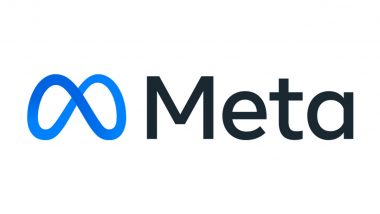As an entrepreneur in India, applying for a Business Loan may seem like a daunting task, especially when you're unfamiliar with the terms and terminologies used in the financial industry. Understanding the terms and jargon associated with Business Loans is essential to make informed decisions and avoid misunderstandings or surprises. This blog will discuss the most common terms related to Business Loans, making it easier to understand the process and secure your business’s funding.
Standard Terms Involved with Business Loans
1. Prepayment Penalty
Some loans have a prepayment penalty if you repay the loan before the agreed-upon tenure. Understand these terms before signing any loan agreement.
2. Working Capital
Working capital is the funds needed to cover day-to-day business operations. Business Loans can help build working capital to manage inventory, pay salaries, and meet other operational expenses.
3. Debt-to-Equity Ratio
The debt-to-equity ratio (D/E Ratio) compares a company’s total debt to its equity (shareholder’s funds). It helps assess financial leverage and risk. A lower D/E ratio indicates less reliance on debt financing.
4. Business Plan
A business plan outlines your company’s goals, strategies, financial projections, and operational details. Lenders often require a well-structured business plan before approving loans.
5. Business Line of Credit
A business line of credit is a flexible loan arrangement. You can borrow up to a predetermined limit and repay as needed. It’s helpful in managing short-term cash flow gaps.
6. Collateral
Collateral refers to assets (such as property, equipment, or inventory) a borrower pledges to secure a loan. If the borrower defaults, the lender can seize the collateral to recover the outstanding amount. Understanding collateral requirements is crucial before applying for a loan from top financial institutions like Kotak Mahindra Bank.
7. Amortisation
Amortisation refers to the gradual repayment of a loan over time through regular instalments. It includes both principal and interest. Understanding the amortisation schedule helps track how your loan balance decreases with each payment.
8. Personal Guarantee
You're liable for the loan when you give a personal guarantee. If your business can't repay, your assets are at risk. Understand the implications before providing a guarantee.
9. Invoice Financing
Invoice financing allows you to borrow against outstanding invoices. It helps bridge cash flow gaps while waiting for clients to pay.
10. Moratorium Period
The moratorium period is a grace period after loan disbursement. During this time, you don't need to make repayments. Understand the terms and conditions related to a moratorium.
11. Grace Period
The grace period is between the loan disbursement date and the first EMI payment. During this period, you don’t need to make repayments. It provides a buffer for businesses to stabilise before regular loan payments begin.
12. CIBIL Score
The Credit Information Bureau (India) Limited (CIBIL) score is a credit rating system lenders use. A higher CIBIL score improves your chances of loan approval and favourable terms. Regularly monitor your credit report to ensure accuracy.
13. Loan Disbursement
Loan disbursement refers to the transfer of funds from the lender to your business account. Understanding the disbursement process and any associated fees is always beneficial. It’s crucial to track the timing of disbursements to meet your business needs effectively.
Business Loan Eligibility Criteria
Now that you know the key terms associated with Business Loans, it’s time to understand how to qualify for one. To qualify, the following Business Loan eligibility criteria must be met:
- Minimum turnover requirement: Businesses must have a turnover of at least Rs 40 lakh to qualify for the loan.
- Operational duration: The business should have been in operation for a minimum of three years.
- Profit generation: The business must have generated profits for at least one year within the three-year operational period.
- Eligible entities: The applicant can be a Sole Proprietorship, Partnership firm, Private Ltd Co., Trust, or LLP.
- Business activities: The business can be from the manufacturing, trading, or services sector to be eligible for the loan.
Conclusion
Knowing the terms associated with Business Loans is pivotal for entrepreneurs aiming to secure financial backing for their ventures. From working capital to invoice financing, understanding the terms and terminologies empowers borrowers to make informed decisions and effectively manage their loan obligations. By grasping the most common terms related to Business Loans, entrepreneurs can apply with confidence.













 Quickly
Quickly






















